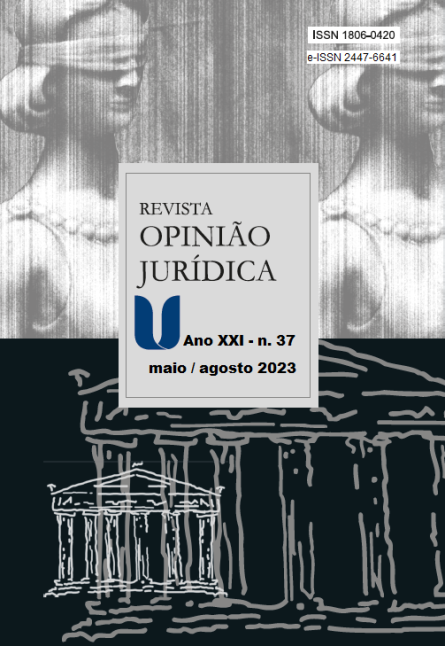THE APPLICATION OF CRITICAL DISCOURSE ANALYSIS IN THE STUDY OF HOUSEHOLD INVILABILITY
DOI:
https://doi.org/10.12662/2447-6641oj.v21i37.p83-112.2023Keywords:
home inviolability, pragmatic language, superior courts, change of understandingAbstract
Contextualization: In theme 280, the Federal Supreme Court (STF) established the thesis that forced entry into a home without a court order presupposes the existence of well-founded reasons. The Superior Court of Justice (STJ), in addition to establishing the idea of a probative standard for entry into the suspect's home without a court order, now also requires a demonstration of urgency for entry and voluntary consent, free of any kind of constraint or coercion, leaving the state authority with the burden of proving the legality and voluntariness of the resident's consent.
Objective: Despite the change in the understanding of the superior courts, it is necessary to verify if there is communication between the understanding of the superior courts and the position of the Court of Justice of the State of Ceará (TJCE), using, for that, the Critical Analysis of Discourse (ACD), which proves useful in revealing the ideology behind legal discourse.
Method: The research will use a bibliographical, legislative and jurisprudential review on the subject, using works from Theory of Law, Philosophical Hermeneutics and ACD, envisioning a dialectical analysis of the performance of the ECJ.
Conclusion: it is understood that the Law must be applied, considering the reality of its operator. Thus, the current understanding of the Superior Courts has represented an advance in the protection of fundamental rights, reflected in the decisions of the TJCE, with the aim of inhibiting situations in which police authorities act, insistently, on the margins of the understandings of the Courts.
Published
How to Cite
Issue
Section
License
CESSION OF COPYRIGHTS
The submission of articles to analysis for publication on Opinião Jurídica implies the author(s) transfers copyrights to Centro Universitário Christus – UNICHRISTUS for reproduction, publicizing, distribution, printing and publication, according to the Publication Norm 414R, Opin. Jur., Fortaleza, year 12, n. 16, p.1-414, Jan./Dec. 2014, costs to be bore by UNICHRISTUS, in whatever format or means that may or shall exist, in accordance to articles 49 and following of Federal Law 9.610/98.
1. In ceding copyrights, the author(s) agrees to do so in exclusivity, free of charge and for the totality of the work.
2. UNICHRISTUS may make the work, in its entirety or in parts, available for scholarly purposes, without altering its contents, except for small corrections that are deemed necessary.
3. The cession of copyrights is valid in all countries and for versions of the material in its original language or translated into a foreign language.
RESPONSIBILITY FOR THE CONTENT
By submitting an article, the author(s) declare to have sole responsibility for the content of the piece and is(are), therefore, responsible for any judicial or extrajudicial measures referring to it.
1. In case of joint authorship, all authors are considered collectively responsible, except when proved otherwise.


















